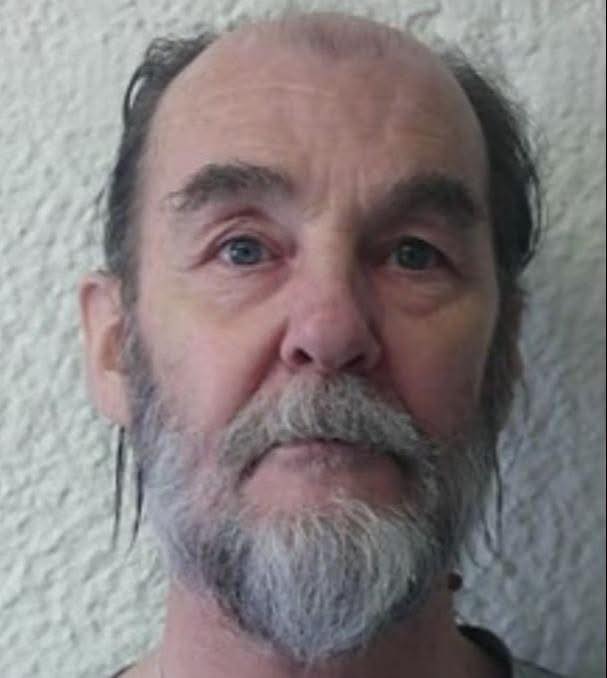News
Ysgol Penrhyn Dewi’s mobile phone policy praised by councillors

A PEMBROKESHIRE school, which operates a ‘check-in’ facility for pupils’ mobile phones, could become a model followed by others in the county, councillors heard.
The issue of mobile phones and their effect on pupil’s education was raised in a submitted question by Councillor Viv Stoddart, heard at the December 14 meeting of full council.
Cllr Stoddart said: “During a recent visit to Ysgol Penrhyn Dewi by a panel of councillors serving on the council’s Schools and Learning Overview and Scrutiny Committee, members were impressed with the school’s mobile phones policy.
“Last month the visiting panel reported back to the scrutiny committee that the system of pupils checking their phones into a locked cabinet at the start of the school day, and retrieving them at the end of the day, had resulted in a 75 per cent improvement in safeguarding, vastly improved behaviour and better communication.
“Will the Cabinet Member for Education and the Welsh Language [Cllr Guy Woodham] tell council how many of our secondary schools have a similar “check-in” mobile phones’ policy which reduces classroom disruption, improves learning and prevents pupils being bullied?”
Responding, Cllr Woodham said St Davids’ Ysgol Penrhyn Dewi was the only school in the county currently operating such a scheme.
He said a recent presentation by the school’s head to other headteachers prior to the recent visit had shown an encouraging difference in behaviour and safeguarding, despite initial teething problems.
He said other schools in the county were monitoring the effects of the policy, with a briefing for school governors expected in the Spring.
Cllr Stoddart welcomed to news, hoping the council would give it support.

Cllr Woodham stressed the council would encourage adoption of similar policies rather than enforce such conditions, but added: “The evidence does seem to support that it makes a significant difference.”
An article on Wales On Line this week focused on the new mobile phone policy at a school, which has received positive feedback from parents, staff, and the headteacher, Mrs. Rachel Thomas. The policy, which is not an outright ban, involves students handing in their phones at the beginning of the school day and retrieving them at the end.
One parent expressed gratitude for the policy, noting that it helped her daughter learn to value her time in school and separate it from phone usage. Another parent observed a transformative impact on their daughter, praising the school for its bold decision. The absence of phones has reportedly led to increased sociability among students.
Staff members have also welcomed the change. Mrs. Thomas relayed comments from teachers who noticed a significant decrease in issues related to inappropriate photos, social media, and group chat related unkindness. They also reported a noticeable improvement in pupils’ social skills and communication, as well as a reduction in distractions from learning.
Mrs. Thomas explained that while the policy isn’t a total ban, it requires students to hand in their phones during the school day, addressing issues like sexting, texting during lessons, and students leaving classes to meet. This decision was made after consulting with parents, staff, governors, and pupils. The policy has led to a more focused learning environment, with only one incident of phone damage and a mix-up in phone retrieval.
Furthermore, the absence of phones in classrooms has stopped students from using them during lessons, leading to better engagement and academic outcomes, especially noted in the mathematics department where students now use scientific calculators instead of phones.
Crime
Man charged with attempted murder after Carmarthen park incident

57-year-old due in court following alleged knife and stalking offences
A MAN has been charged with attempted murder following a serious incident in Carmarthen town centre last week.
Dyfed-Powys Police confirmed that James McKenna, aged 57, from Carmarthen, has been charged with attempted murder, possession of a bladed article in a public place, and stalking.
The charges relate to an incident in Carmarthen Park on Thursday (Jan 29), which prompted a significant emergency services response and caused concern among residents.
Police have not yet released full details of the circumstances, but officers were seen in and around the park area for several hours following the incident while enquiries were carried out.
McKenna is due to appear before Llanelli Magistrates Court on Thursday (Feb 5).
The Herald understands the case involves allegations of both violence and targeted behaviour towards an individual, with stalking listed among the charges.
Public concern
Carmarthen Park is a popular and busy public space used daily by families, dog walkers and joggers, and incidents of this severity are rare.
The news has prompted concern locally, particularly as the alleged offences include possession of a knife in a public place.
Residents have previously raised questions about safety in parks and open spaces across west Wales, especially during darker winter evenings.
Court proceedings
At this stage, the charges remain allegations and the case will now proceed through the courts.
Magistrates will decide whether the case is sent to Crown Court due to the seriousness of the attempted murder charge.
Further details are expected to emerge during Thursday’s hearing.
The Herald will be attending court and will provide updates as they become available.
Crime
Sex offender jailed after living off grid in Pembrokeshire and refusing to register

Man walked into police station after months avoiding authorities
A CONVICTED sex offender who told police he intended to live “off grid” rather than comply with legal monitoring rules has been jailed after handing himself in at a Pembrokeshire police station.

Christopher Spelman, aged 66, of no fixed address, appeared for sentence at Swansea Crown Court after admitting breaching the notification requirements of the sex offenders register.
The court heard Spelman was released from prison in Dorset on July 4 last year but immediately refused to provide police with an address, despite being legally required to do so within three days.
Instead, he indicated he planned to buy a tent and live outdoors.
Prosecutor Brian Simpson said officers subsequently launched a nationwide search when Spelman failed to make contact with police. Public appeals were issued and his case featured on the television programme Crimewatch.
Detectives believed he had been travelling around the UK using public transport and staying at campsites. He was known to have links to several areas including Merseyside, Manchester, Devon, Cornwall and Hampshire.
His whereabouts remained unknown until January 3 this year, when he walked into Haverfordwest police station and was arrested. It is unclear how long he had been in Pembrokeshire.
Spelman previously served seven years in prison after being convicted in 2014 of 12 counts of sexually assaulting a girl under the age of 14. He was placed on the sex offenders register for life.
The court heard this was not the first time he had failed to comply with the rules. After an earlier release in 2016, he again failed to register his address and avoided police for around five years before being caught.
He has 11 previous convictions for 29 offences.
Defence barrister Andrew Evans described the case as unusual and said his client had long disputed his original conviction and had expressed a wish to live “outside society”.
However, he said Spelman had gradually accepted that he remained subject to court orders and now wanted more stable accommodation and a chance to rebuild his life. The defendant asked the court to impose a custodial sentence so arrangements could be made for his future release.
Judge Geraint Walters noted there were signs Spelman wished to change but warned that any further breaches would result in longer prison terms.
With credit for his guilty plea, Spelman was sentenced to 10 months in prison. He will serve up to half in custody before being released on licence.
Crime
Former Wales rugby star admits Christmas Day drink-driving offence

Ex-Ospreys captain was almost twice over limit in Pembroke town centre
Former Wales back row Jonathan Thomas has admitted driving through Pembroke town centre on Christmas Day when he was almost twice over the drink-drive limit.
This week Haverfordwest magistrates heard that Thomas, 43, was stopped by officers as he drove his Mercedes CLA 220 along The Green, Pembroke, at around 5pm on Christmas Day.
“The officers were very concerned at the manner of his driving, as the car was being driven erratically and was swerving to the other side of the road,” said Crown Prosecutor Sian Vaughan.
“When Jonathan Thomas got out of the car, the officers could see that he was having difficulty standing and was unsteady on his feet.”
Subsequent breathalyser tests showed Thomas had 62 mcg of alcohol in his system, the legal limit being 35.
Thomas, who has no previous convictions, pleaded guilty to the drink-drive charge and was represented in court by solicitor Jess Hill.
“He has family in the area and had travelled to spend time with them on Christmas Day,” she told the magistrates. “He’s very remorseful for his actions and hugely regrets his decision that day.”
Jess Hill concluded by saying that Thomas is currently “between jobs and living off his savings”.
Thomas, who gave his address as Main Road, Bredon, was disqualified from driving for a total of 18 months.
“The length of your disqualification reflects the fact that you were more than a little bit over the limit,” commented the presiding magistrates when imposing sentence.
He was fined £120 and ordered to pay £85 costs and a £48 court surcharge.
The former Wales back row left his role as Swansea RFC head coach at the beginning of December 2025 as a result of ongoing health concerns. He was forced to retire from playing in 2015 on medical advice after being diagnosed with epilepsy and is one of the 390 former rugby union players currently taking part in a concussion lawsuit against the sport’s authorities.
“Long-standing issues linked to the head trauma have caused me some concern recently and it has been impossible for me to give the role everything it needs,” he said in a previous interview with the BBC.
His rugby career started out with Pembroke RFC juniors before moving to Swansea RFC, which he captained when he was 19. He then joined the Ospreys where, over a ten-year period, he won four league titles and an Anglo-Welsh Cup. He was the youngest player to captain the Ospreys and, at the time of leaving, was the joint highest appearance holder, together with Andrew Bishop, on 188 appearances.
His international career saw him play for Wales at Under-16, Youth, Under-19, Under-21 and Sevens levels. He made his senior international debut against Australia in 2003, featured at the 2007 Rugby World Cup and was part of two Six Nations Grand Slam-winning sides in 2005 and 2008. Between 2004 and 2011, Thomas was included in every Wales Six Nations squad. In his appearances for Wales, he scored seven tries.
-

 Health6 days ago
Health6 days agoConsultation reveals lack of public trust in health board
-

 News2 days ago
News2 days agoPrincess of Wales visits historic Pembrokeshire woollen mill
-

 Crime5 days ago
Crime5 days agoPembroke man accused of child sex offences sent to Swansea Crown Court
-

 Community7 days ago
Community7 days agoCampaign to ‘save’ River Cleddau hits over 2,200 signatures
-

 Health3 days ago
Health3 days agoDoctor struck off after sexual misconduct findings at Withybush Hospital
-

 Crime1 day ago
Crime1 day agoHakin man’s appeal delayed again as Crown Court seeks guidance on insurance law
-

 Community5 days ago
Community5 days ago50s women threaten legal action over pension compensation refusal
-

 Business6 days ago
Business6 days agoEight-year prison sentence after vehicle stop uncovers drugs worth over £150,000





























